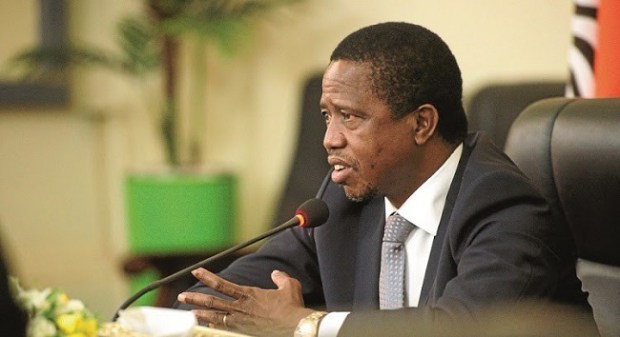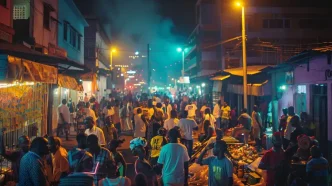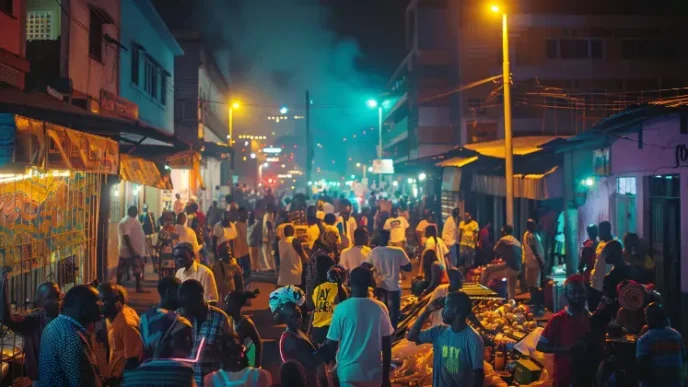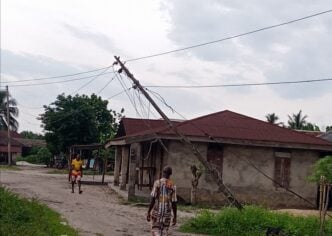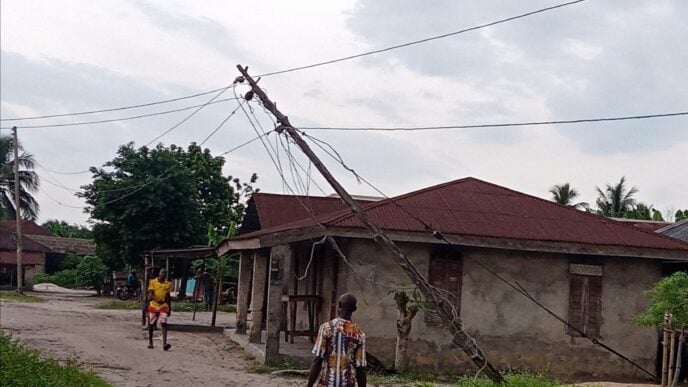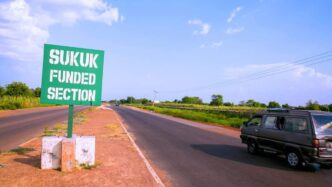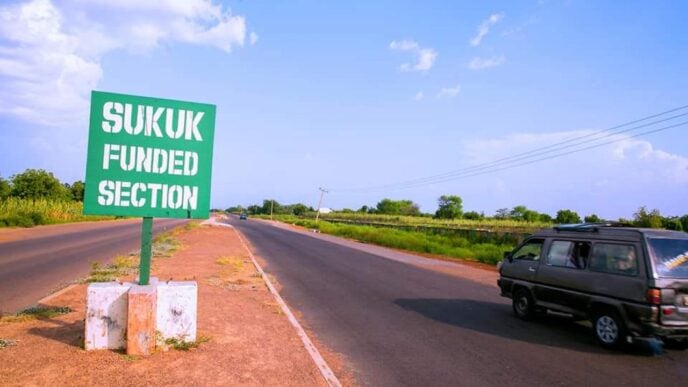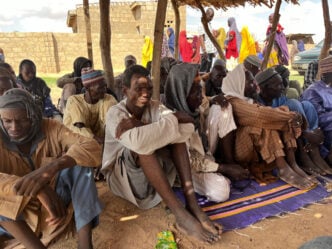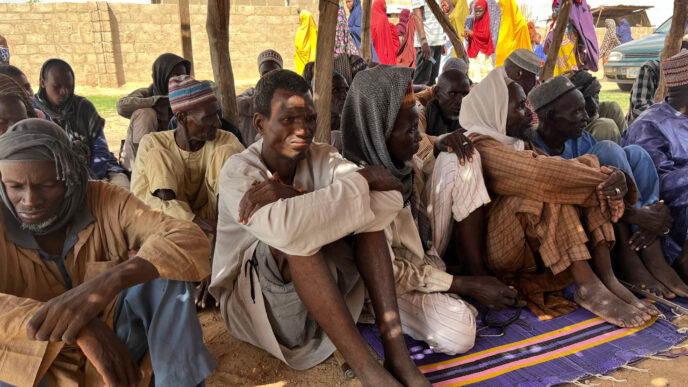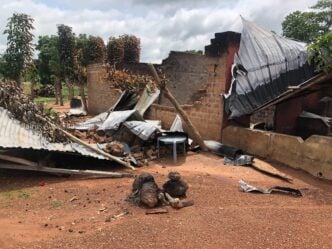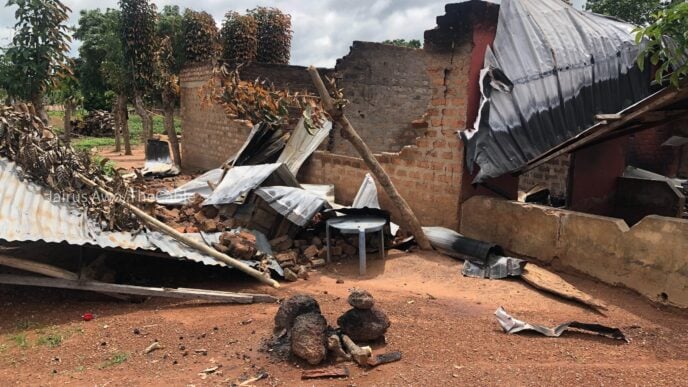BY KENNETH EMODI
The recent impasse between the Zambian government, led by President Hakainde Hichilema of the United Party for National Development (UPND), and the family of former President Edgar Lungu, regarding the burial of his remains in South Africa, rather than his homeland, casts a long shadow over the nation’s political landscape. While the specifics of the dispute are multifaceted and deeply personal for the Lungu family, the very public nature of such a disagreement, particularly concerning a former head of state, raises profound questions about democratic health, national unity, and the narrative posterity will inherit.
Though Lungu remains a polarising figure in Zambian politics, his passing should have been an opportunity for national reflection and unity. Instead, the contention over where he should be buried threatens to widen political divides and set troubling precedents about how nations treat their former leaders.
At its core, this dispute transcends a mere family affair. The resting place of a former president is not just a grave; it is a powerful symbol of national memory, reconciliation, and the continuity of statehood. When such a figure’s final repose becomes a point of contention between the incumbent government and the deceased’s kin, it speaks volumes about the underlying tensions and the unfinished business of political transitions. For Zambia, a nation that has largely prided itself on peaceful democratic transitions, this impasse threatens to undermine the fragile fabric of reconciliation and civility that defines a mature democracy.
Advertisement
Implications for Democracy
The handling of a former leader’s legacy, even one who may have been a political adversary, is a litmus test for the robustness of a democratic system. A magnanimous approach to former leaders, irrespective of their political past, can signify a government’s commitment to national unity over partisan division. Conversely, a prolonged and public dispute risks being perceived as a politicisation of death, deepening societal cleavages rather than healing them. It can breed mistrust, fuel political grievances, and set a dangerous precedent where post-presidency treatment becomes contingent on political alignment.
In a thriving democracy, the dignified remembrance of all former leaders, regardless of their successes or failures in office, contributes to a shared national history. When a former president’s remains become a bargaining chip or a symbol of ongoing political animosity, it sends a chilling message about the limits of political tolerance and the challenges of national cohesion. It can also divert attention from pressing national issues, as public discourse becomes consumed by an emotionally charged debate.
Advertisement
At the heart of the issue lies a symbolic act: burial. In most African societies, where cultural values still hold sway, where and how a leader is buried is not merely a family affair—it’s a national matter. It is about closure, legacy, and collective memory. For Lungu’s family to reject Zambia as a burial ground speaks to a profound breakdown of trust, not only between the family and the state but also between the state and a sizable portion of the citizenry who still revere Lungu. It signals an environment where former leaders (or their families) do not feel safe or dignified in their own country, even in death. And that is a tragedy.
Posterity Will Judge
Zambia has often been celebrated as one of Africa’s more stable democracies, especially in a region where peaceful transitions of power are rare. The 2021 election, which saw the defeat of Edgar Lungu by Hichilema, was hailed globally as a victory for the people’s will. But democracy is not merely about elections; it is about how we treat dissenters, opponents, and even defeated leaders.
The current impasse threatens to erode this democratic ethos. If even in death, political considerations override national unity, then what message does that send to future leaders? That the price of leadership is perpetual enmity? That power struggles persist beyond the grave?
Advertisement
The decision regarding Edgar Lungu’s final resting place will inevitably shape how future generations perceive his legacy and, more broadly, the political culture of Zambia. If his remains are ultimately interred in a foreign land due to an unresolved dispute with the government, it could create a sense of national incompleteness, a missing piece in the tapestry of Zambian history. Future leaders might view such an outcome as a warning: that their ultimate honour and place in history could be dictated by those who succeed them, rather than by their service to the nation.
Moreover, the absence of a national burial site for a former president within Zambia denies citizens a tangible place of remembrance, reflection, and historical learning. It can contribute to a narrative of division rather than unity, making it harder for the nation to collectively process its past and move forward. Posterity thrives on shared narratives and symbols; a contested or exiled burial risks fracturing this collective memory.
Lessons from Afar
History offers numerous examples of leaders whose final resting places have carried significant political weight, for better or worse–Ethiopia’s last emperor, Haile Selassie, was buried in Addis Ababa only in 2000, 25 years after his death in exile.
Advertisement
Ghana’s first president, Kwame Nkrumah, died in Romania in 1972 and was initially buried in his hometown before being reinterred in a national mausoleum after years of political reconciliation.
The controversial former President of Uganda, Idi Amin, died in Saudi Arabia in 2003 and was buried there. His burial abroad meant a complete disavowal by the Ugandan government, preventing any national mourning or reckoning with his brutal legacy. For citizens, it symbolised a deliberate effort to close a painful chapter, albeit without a formal process of national reconciliation or a designated site for collective remembrance of the victims of his regime. It underscored a nation’s desire to move on from a dark past without necessarily confronting it on home soil.
Advertisement
The long-serving dictator of Zaire (now the Democratic Republic of Congo), Mobutu Sese Seko, died in Morocco in 1997, shortly after being overthrown. He was buried there, having fled his country. For Congolese citizens, his foreign burial symbolised the definitive end of an oppressive era and the complete rejection of his rule by the new government and a weary populace. It meant that the nation was able to physically distance itself from a highly divisive figure, allowing for a new political beginning without the immediate shadow of his physical presence.
The former President of the Philippines, Ferdinand Marcos, died in exile in Hawaii in 1989. His remains were only repatriated and buried in the Philippines in 2016, a move that sparked widespread protests and remains highly controversial. For many Filipinos, his burial in the Heroes’ Cemetery was seen as a grave injustice, rehabilitating a dictator who presided over human rights abuses and corruption. For others, it was a long-awaited homecoming. This contentious saga highlights how the burial of a divisive leader can reignite old wounds and continue to polarise a nation for decades. The delayed and disputed burial meant citizens were constantly reminded of unresolved historical grievances.
Advertisement
In contrast to Amin and Mobutu, Malawi’s authoritarian founding president, Kamuzu Banda, died in South Africa in 1997, but was buried in Malawi. Despite his autocratic rule, his repatriation and burial signified a complex national reconciliation, acknowledging his role in founding the nation while moving towards a democratic future. For Malawian citizens, it represented a more nuanced approach to history, where even a problematic figure could be afforded a national resting place, allowing the nation to collectively grapple with its past while looking ahead.
Their eventual reburials—or lack thereof—reflected how nations either confront or evade their difficult histories.
Advertisement
The Path Forward for Zambia
The Zambian government and the Lungu family face a critical moment. While the specifics of the dispute are not fully transparent, the potential ramifications for Zambia’s democratic trajectory and its national narrative are clear. Learning from other nations, the manner in which a former president’s legacy is managed, including their final resting place, can either foster national healing or entrench division.
Posterity remembers more than policies; it remembers how we treat each other, especially in moments of vulnerability and loss. The choice to deny or politicise a former president’s funeral sets a precedent that may come back to haunt those in power. Today, it may be Lungu. Tomorrow, it could be another leader from a different party.
If Zambia wants to build a resilient democracy, then it must find a way to separate politics from dignity, especially in death. The burial of a former president, no matter how divisive his legacy, must be handled with honour and neutrality, lest the country be seen as one where grudges live longer than national values.
A resolution that prioritises national cohesion, respect for the office of the presidency, and the need for a unified national memory, rather than partisan score-settling, would serve Zambia’s democracy well. The ultimate aim should be to ensure that the chapter of former President Lungu’s life concludes in a manner that contributes positively to Zambia’s democratic maturity and leaves a legacy of dignified transitions for posterity. The unresolved rest of a former leader is, truly, a test for Zambian democracy.
A Call for Statesmanship
One could argue that denying Lungu a state burial in Zambia, his homeland, is a denial of a significant piece of Zambian history. His presidency, regardless of its controversies, is a chapter in the nation’s narrative. To relegate his burial to a foreign land risks creating a narrative void, a missing piece in the national tapestry of leadership and remembrance. This also has implications for the future, potentially hindering national reconciliation and the establishment of a shared understanding of the country’s past.
Historical parallels, though not exact, exist. Consider the varied circumstances surrounding the burials of other world leaders. Some, like the exiled leaders forced into exile, had their final resting places far from their homelands, becoming potent symbols of political oppression and injustice. Others, like those who died abroad under controversial circumstances, had their funerals become flashpoints for political and social unrest. Each case underscores the fact that the burial of a former leader is far more than a simple act of interment; it is a significant political and cultural event that can influence national identity and political discourse for years to come.
The Zambian government’s perspective likely stems from the need to maintain a sense of national unity and stability. A state funeral in Zambia could have served as a gesture of reconciliation, allowing for a collective mourning process and an opportunity for national healing. However, the family’s decision underscores a lack of trust in the current government and raises questions about the broader political climate and its potential to foster reconciliation. The situation presents a challenge for Zambia’s democracy, demanding a nuanced understanding of how to balance political differences with the need to respect the wishes of the deceased and their family, all while upholding the dignity of the office of the president.
The resolution of this impasse will have lasting implications. It will set a precedent for future transitions of power, shaping how society deals with the legacy of its leaders and the delicate dance between national unity and personal desires. The story of Edgar Lungu’s burial isn’t just about where his body rests; it’s about Zambia’s ongoing journey towards a mature and inclusive democracy.
President Hichilema and his government have a chance to rise above the fray. By engaging the Lungu family in good faith, offering guarantees of a dignified, non-partisan funeral, and perhaps even allowing the former president to be buried with state honours (as has been customary), they can signal that Zambian democracy is mature enough to accommodate political differences—even in death.
The handling of President Lungu’s burial serves as a stark reminder of the delicate balance between political sensitivities, family wishes, and the broader national interest in fostering unity and respect for deceased leaders. Because if we cannot allow a man to rest in peace in the land he once led, then what does that say about our politics, our unity, and our future?
Kenneth Emodi is a senior editor at Opera News and web editor at THEWILL News Media. He can be contacted via [email protected]
Views expressed by contributors are strictly personal and not of TheCable.
